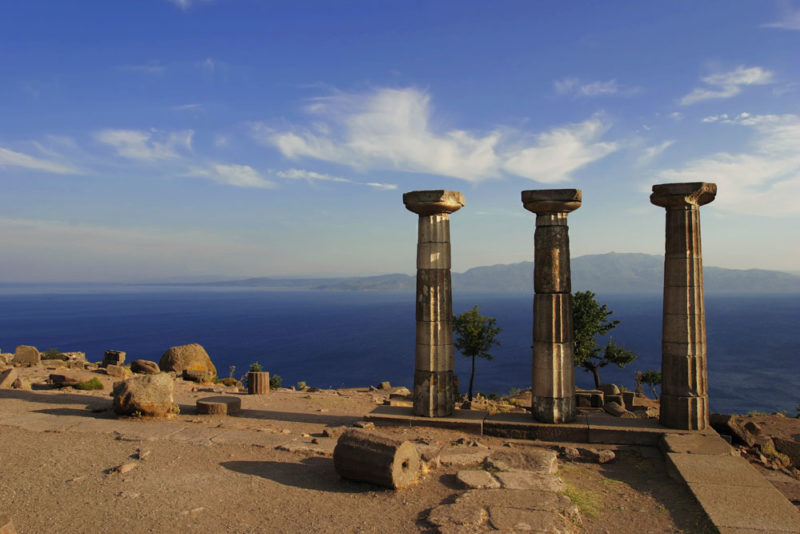Why The Great Books?

The Great Books Program
is a core component of our curriculum. The purpose is to guide students in reading, understanding, and discussing many of the world’s great works of literature, history, theology, philosophy, science, and government. Here is why we find such value in the classics:
First,
our curriculum in the Great Books helps us to understand the world we live in. As Solomon said in Ecclesiastes 1:9, “That which has been is what will be, That which is done is what will be done, And there is nothing new under the sun.” We often think that the particular moral, ideological, and cultural movements of our day are unique to us. That is, we think “it’s never been this way”, or that “we’ve never seen anything like this before.” The truth is, however, our current situation is a direct outflow of the ideological developments of the Great Books. Studying this history is vital to helping us understand where we are now and how we got here. Our curriculum is designed to do just that!


Second,
through a program like ours, students are introduced to a barrage of new ideas that awaken a passion for the mind and their creative intuitions. The Great Books curriculum shows a student the diverse ways of thinking that the great thinkers have employed and invites them to do the same. Students learn that creativity is not just something we utilize in the fine arts, but it is also something that we use on the toughest questions and problems that we face. If the great thinkers were anything, they were problem solvers that used their intelligence and creativity to address and solve the problems of their day. Engaging these thinkers helps our students to see this and empowers them to follow in their footsteps.
Third,
the great thinkers also tutor us as critical thinkers. They not only used their creativity to solve problems, they also modeled critical thinking and logical analysis. By reading through the classics, our students see example after example of clear thinking and critical rigor. At the same time, they see example after example of poor thinking, shoddy argumentation, and sloppy ideas. As our students read through these counterexamples arguments, they quickly develop an eye for good arguments and are better equipped to offer strong arguments of their own.


Fourth,
our Great Books program provides intellectual artillery for the raging battles for the contemporary mind. Like the times before us, we face a swarm of criticisms and arguments against our Christian beliefs and values. The good news is that, as mentioned above, most of the attacks are nothing new. They’ve been put forward before and have already been addressed. By studying the Great Books, our students are given the opportunity to see how the greatest minds of history have thought about the tough questions and see how they have responded. Today, we do not have to start from scratch in formulating a response. We have the privilege of standing on the shoulders of the giants before us. From the great minds of Plato, Aristotle, Augustine, Anselm, Aquinas, Descartes, Bacon, Lewis, and many more, we have inherited a legacy of thought that continues to stand against the ongoing attacks and arguments against us.
Fifth,
the classics and the great thinkers often help us to clarify, understand, and illustrate the essential doctrines of Christianity. Our faith is the faith that was once delivered to the saints, and has been passed down from generation to generation. We, not the previous thinkers, now hold that faith and are stewards of it. This faith must be understood, it must be preserved, it must be proclaimed, and it must be defended. These are hefty tasks that requires everything we are and all the help we can get. This is where the great thinkers come in. Dialogue partners are often the most essential aspects of learning. And, who better to be in dialogue with than the greatest minds of history? They offer a richness, clarity, elegance, and appeal that is enticing, convincing, and empowering. Those who read them are better for it.
